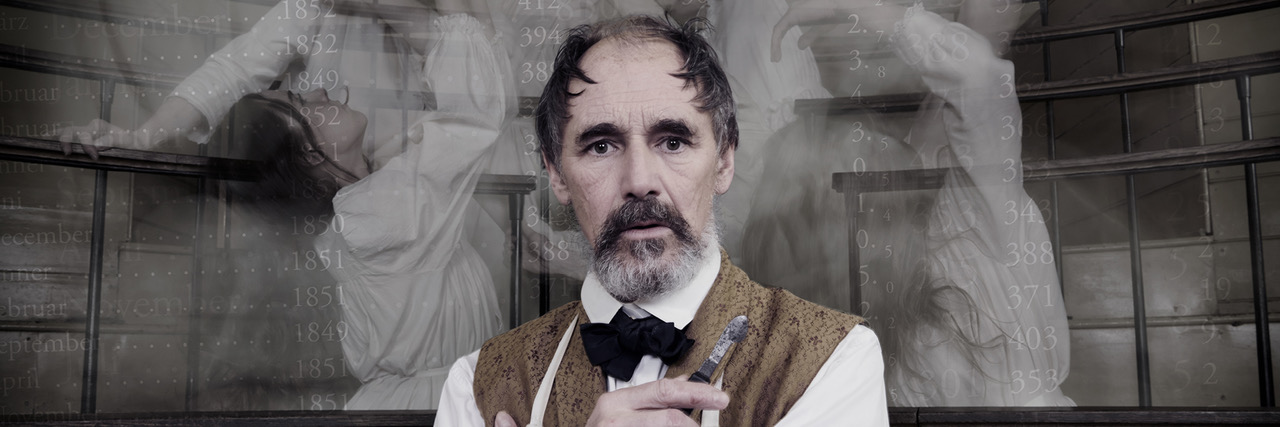
20 January – 19 February 2022
Few actors working on the stage today have that special, indefinable, ability to suggest or make real the abstract. This new play by Stephen Brown with Mark Rylance is, amongst other things, about the idea of scientific method, its champions and its antagonists. Mr Rylance’s particular forte is a brand of high definition acting that does not embellish beyond the usage of necessity. The result, as here, is the portrayal of an inner intensity rare enough on the screen and gifted to a mere handful of stage artists in each generation. His physical interpretation of character is equally detailed and concise. So with Dr Semmelweis the excited yet hesitant walk of someone unsure of himself, someone with inner restraints and a fringe of confusion confirms our picture of a man swimming in less congenial waters than those of the Danube in which, on occasion, he dips.
The historical Dr Semmelweis was working in mid-nineteenth century Vienna before the discovery of bacteria or viruses, so anomalies in the death rates on the maternity wards as between the surgeon-run ward and the nurse-run ward cried out for an explanation which the science of the day was at a loss to supply. Semmelweis however, not content with the shrugging acknowledgement of a correlation was single minded in his search for the causal explanation of the terrible loss of women’s lives. In Tom Morris’s production the plangent toll of the bell in the surgeon’s ward signalling the delivering of the last rites is for Semmelweis a rallying call. Perhaps recalling Voltaire’s, “Judge a person by their questions, rather than their answers”, Semmelweis is relentless in his pursuit of the truth. Semmelweis’s charge that wilful ignorance is morally culpable is as relevant today as it was for him and Voltaire before.
We are living through a time when science is in tension with the expedient, when denying or ignoring the facts costs lives. Plus ça change; Semmelweis finds himself confronted by the timeless drag on scientific advance that is authority. Excitable and immoderate in his language his flaw, perhaps a result of his delicate psychological condition, is an inability to consider the politics that surround great institutions.
Tom Morris, with what we must call an accustomed command of the total palette available to live theatre, brings movement, dance, music and lighting to the portrayal of Semmelweis’s inner turmoil. A silent chorus of the writhing and agitated ghosts of dead mothers dancing to the on-stage string quartet give us a tangible insight into Semmelweis’s troubled state of mind. The music of Adrian Sutton and the choreography of Antonia Franceschi are a constant presence helping Morris turn the base metal of sequential facts into the glittering time-bending narrative of one of medicine’s neglected heroes.
★★★★☆ Graham Wyles 27th January


